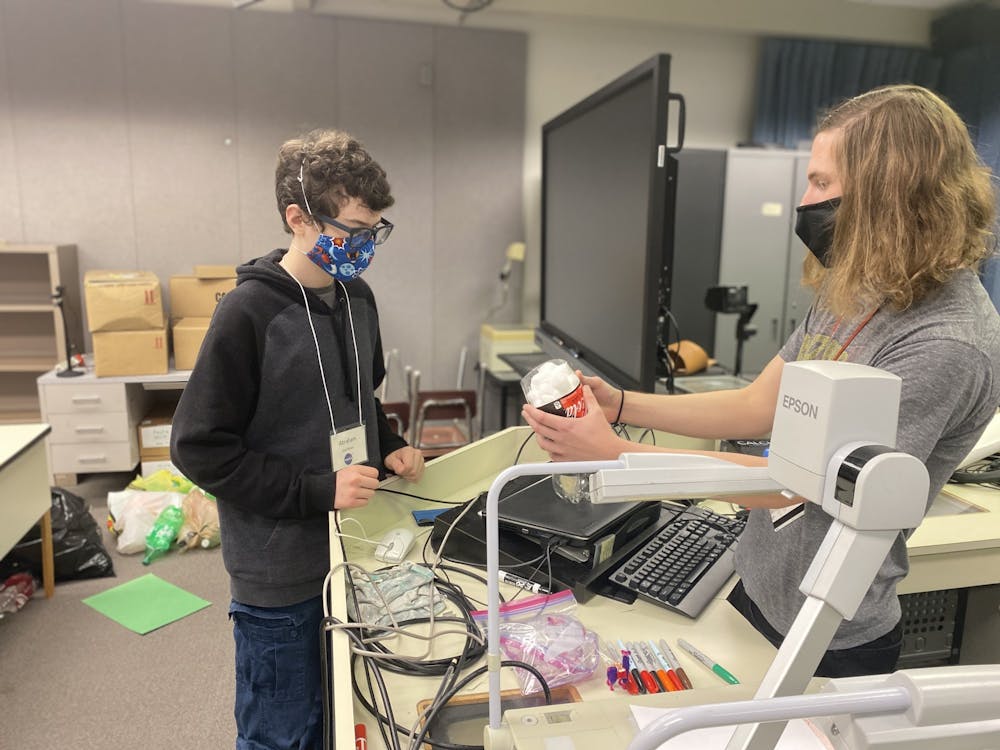After most summer activities and camps were canceled in 2020 due to the COVID-19 pandemic, they are making a return this year as cases continue to drop and restrictions are lifted.
The Indiana Academy for Science, Mathematics and Humanities is hosting an in-person summer camp June 21-25 for students in fifth through ninth-grade. The camp is called “NASA Make it Happen: What it Will Take to Live on Mars,” and has a virtual option as well.
Julie Tuttle-Davis, Indiana Academy director of external affairs, oversees outreach programming for the academy’s summer camps, which she said have been going on for about 30 years.
“We do different summer camps,” Tuttle-Davis said. “We’ve not done this particular one before, but the Indiana Academy has done summer camps — I won’t say every summer, but almost every summer — since the beginning.”
This particular camp was created through a partnership with NASA Glenn Research Center in Cleveland. Tuttle-Davis said the academy partnered with the research center in 2019 to train the camp instructor.
The NASA camp is the only summer camp the Indiana Academy is hosting this year, Tuttle-Davis said, because of the COVID-19 pandemic.
“Some summers we’ve had [camps] every week in June, and we’ll have camps running for multiple grade levels,” she said. “We’re glad we’re able to even just do one this summer, given everything that has been going on.”
Michael Niemeier, Indiana Academy assistant teaching professor of mathematics, is the instructor running the four-day camp. He completed a course through the Glenn Research Center to be certified to teach the camp.
“I had to complete a two-day workshop given by NASA outlining the project and going through the design process,” Niemeier said via email.
Niemeier said campers have participated in a variety of activities, including visiting the Charles W. Brown Planetarium, using virtual reality to walk on the surface of Mars and designing and building a prototype to solve some of the problems with living on Mars.
For the students attending camp virtually, the experience has not been much different.
“The virtual students will be working with the in-person students, just from the comfort of their own home,” Neimeier said before the camp began. “They will be able to interact with other virtual students, as well as in-person students, as I will have a webcam I’ll be walking around with so that everyone can see each other’s projects and what they are working on.”
Tuttle-Davis said the camp is entirely synchronous for online students, which makes the virtual experience more like the in-person one. She said the campers could also sign up to receive a kit of materials to build their prototypes, but most of the materials are household items. In-person campers used household items provided by camp staff.
“There’s an option for you to come and pick it up from the Indiana Academy, or you could have us mail it to you,” Tuttle-Davis said. “Either way, you’re hopefully going to get the same experience and the same kind of materials that you can build your prototype and share with the group in real time.”
Tuttle-Davis also said due to Ball State’s COVID-19 guidelines, registration for the in-person camp was limited to 20 students. Sixteen students attended the camp in-person and four attended virtually.
She said she is most excited to see solutions the students come up with to live on Mars, and is interested in seeing their creativity.
“[Living on Mars] is not out of the realm of possibility, given where we’re at in space exploration,” Tuttle-Davis said. “They may actually be a part of building what it takes to live on Mars.”
Neimeier is also excited to see the students’ creativity with their projects and their interactions with each other.
He said, “I also think this will be the most successful part of the camp, as the highlight of any academic endeavor is being able to share your ideas and solutions.”
Contact Maya Wilkins with comments at mrwilkins@bsu.edu or on Twitter @mayawilkinss.





